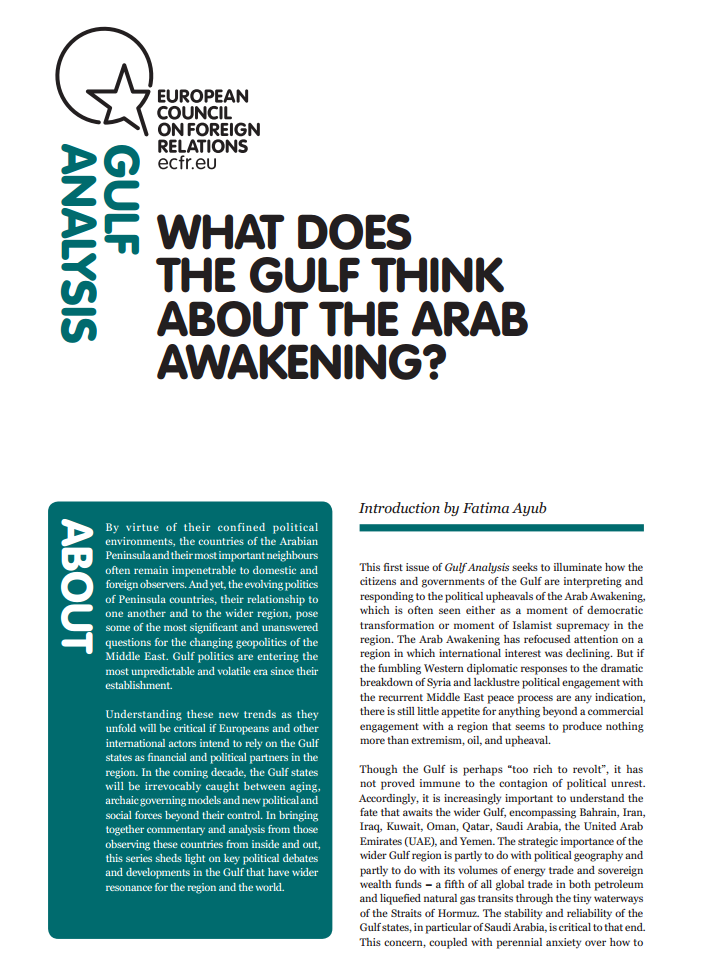What does the Gulf think about the Arab Awakening?
Understanding the influence of the Gulf States
The strategic importance of the Gulf region makes it vital for any understanding of the wider issues of the Middle East and North Africa region, from the Arab Awakening, to Syria, to Israel and Palestine. But while their money, location and energy resources make the Gulf States increasingly influential, their political life remains opaque and inaccessible to outsiders.
ECFR’s new Gulf Analysis project seeks to shed light on how and where the Gulf States are using this influence.The first edition, edited by Fatima Ayub, focuses on how they view the Arab Awakening, explained in four essays by insiders from the region.
- Saudi Arabia has been caught off guard by the Awakening at a time when social media technology has given citizens new spaces for debate. Its response at home has been to make big welfare hand-outs, marginalise dissent and cast domestic protests as Shia provocation. Retrenching its foreign policy along sectarian lines in conflicts in Syria and Bahrain, it struggles to reorient its foreign policy in a region where the Muslim Brotherhood is ascendant.
- With its massive wealth, regional ambitions and a foreign policy driven solely by the visions of its ruler, Qatar has experienced no stirrings of domestic political unrest. Despite building a profile as a global heavyweight, serious domestic challenges lie ahead given its rapidly expanding expatriate population and growing regional objections, to how it cultivates its soft power as big projects like Al-Jazeera see their star fading.
- Kuwait, once the most politically open Gulf monarchy, has become less liberal and more divided in the wake of popular discontent. Despite tens of thousands of Kuwaitis taking to the streets to protest, the government, instead of addressing grievances around corruption and civil rights, has widened a political crackdown.
- Caught on a fault-line between Saudi Arabia and Iran, Bahrain has responded to demands for greater political inclusion from the Shia majority by mobilising a “loyal” Sunni opposition and maintaining a strategy of political repression. However, the government’s strategy has entrenched political polarisation and inadvertently made common cause between groups with the same grievances.
“The Gulf States can’t rely on spending their way out of crises at home and abroad forever. As long as Gulf powers see the Arab Awakening in the broader region as a time for damage limitation or strategic opportunism, they fail to understand what the political moment means for them. Their archaic political systems may be suitable for repression, buying loyalty or attempting glacial reforms, but they are not confronting the rising demands of a young and more politically engaged citizenry.” – Fatima Ayub
What does the Gulf think? Listen to a podcast with Fatima Ayub:
The European Council on Foreign Relations does not take collective positions. ECFR publications only represent the views of their individual authors.



